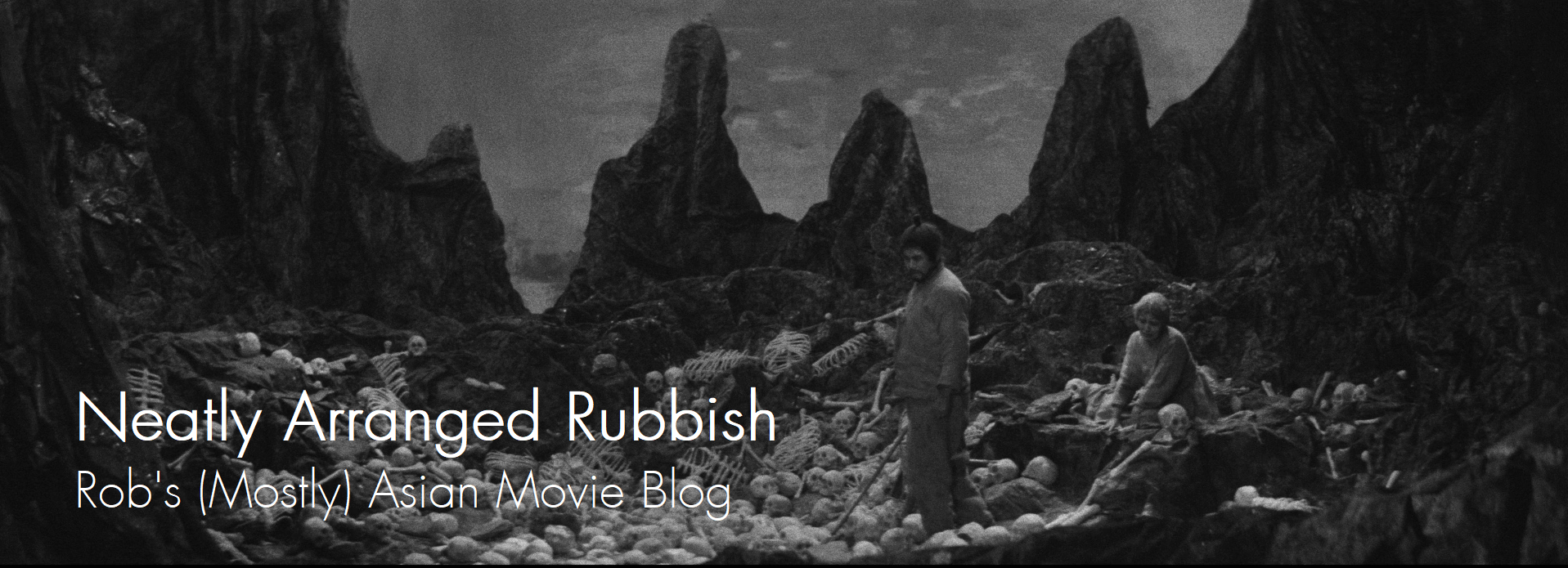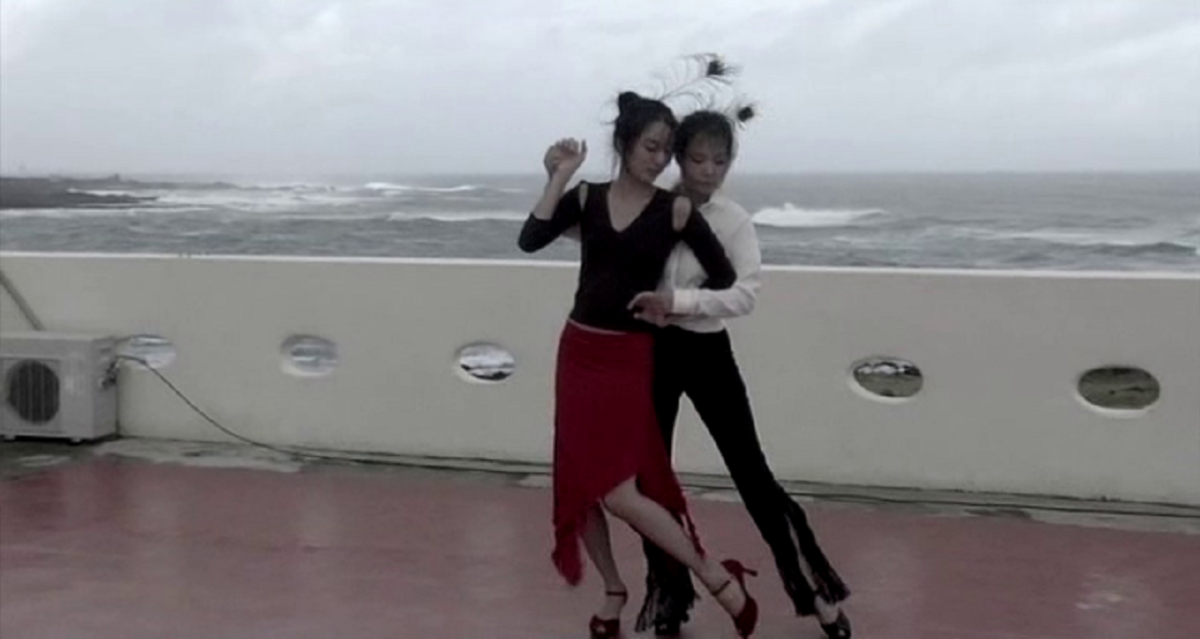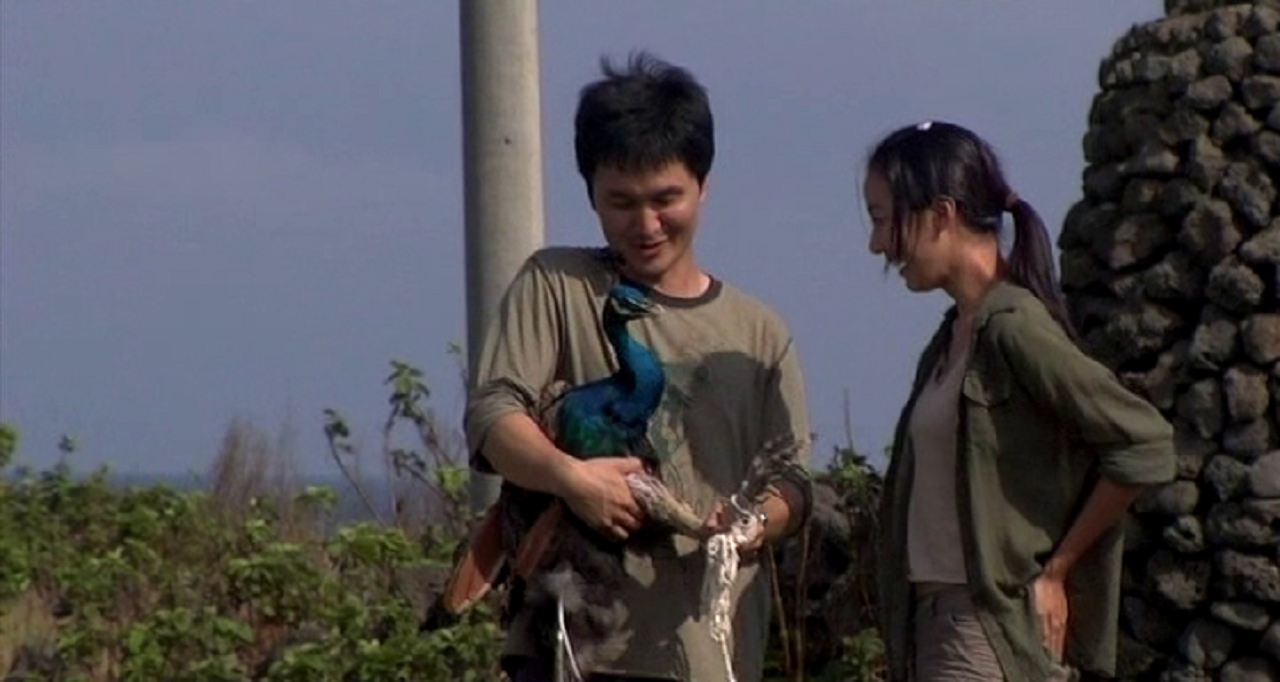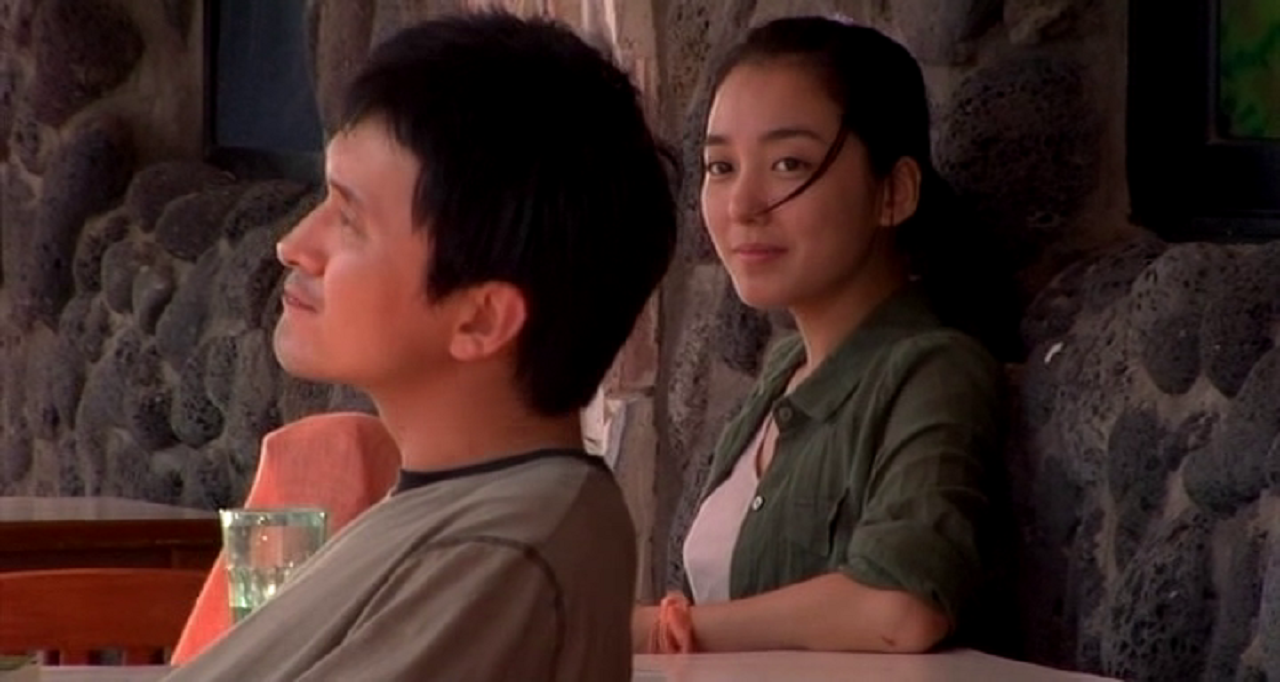Last Updated on December 18, 2020 by rob
Struggling to write his new screenplay, movie director Jang (Jang Hyun-sang) arrives on a remote island and books into a deserted motel run by the young and unfailingly cheerful Lee (Lee So-yeon). But what’s really prompted Jang’s arrival is that 10 years earlier he and his musician girlfriend stayed on the same island together and agreed to reunite there a decade later. Although the pair have long since separated Jang wants to find out if his ex remembers their agreement. Then one day a shipment for Jang arrives at the island. To his frustration no sender is listed but the delivery is a piano. Is this a sign that Jang’s former lover is on her way?
There’s a beguiling quality to director Song Il-gon’s follow up to his splendid Spider Forest (2004). Like that film this is also about loss, memory and renewal and it’s filled with a symbolism the meaning of which proves tantalising rather than frustrating. The film hooks you right from the start because Jang’s quest is an easy one to empathise with. After all, there can’t be many people who haven’t wondered – if only in passing – what it might be like to reunite with a former lover. To wonder if – a decade down the line – you’re still on their mind as much as they are on yours. It helps too that Jang doesn’t seem driven by self-pity or much in the way of bitterness (well, other than refusing to root for the German footie team during the world cup because his former love left him for a Kraut, I suppose).
As the story develops there are hints as to where Il-gon’s going with this. Lee’s uncle – living in self-imposed silence because his woman has recently walked out on him – feels like the kind of bitter loner Jang might become and the film’s refusal in its flashbacks to show us the face of Jang’s lover as anything other than an out of focus blur implies that contrary to expectations a happy reunion between these two probably isn’t on the cards. Other possibilities arise. Jang’s desultory chats with the exuberant Lee have us assuming it’s these two who’ll fall in love. Yet the performances by Hyun-sang and So-yeon are so naturalistic and unforced, their dialogue so devoid of any cute bits of business that the film’s ultimate destination remains hard to guess.
The atmosphere of a gusty, rain-swept island in offseason evokes a fateful, foreboding feel and yet the mood is undercut by delightfully out-of-left-field moments such as Lee’s impromptu tango with an unidentified female partner on the roof of her hotel, or Jang discovering and freeing a beautiful blue peacock that’s gotten entangled on the beach. There’s a delight in such scenes that creeps up on you and takes you completely by surprise. Even Lee’s Uncle who’s been suffering in silence the whole film eventually gets his wife back and Lee’s discovery of a letter hidden in the piano finally addresses Jang’s (and ours) curiosity about what happened to his ex. In the Latin rhythms of the film’s score and the persistent motif of the Tango (there’s a lovely scene around a bonfire in which Lee takes Jang as her partner for a little twirl) one senses the way this splendidly eye-catching dance becomes a symbol of life.
It’s a counterpoint to the solitude and loneliness that seems to bedevil all the characters in one way or another. When the attraction between Jang and Lee which has been coursing under the surface finally bursts into the open we really root for Lee to make it to the ferry in time to let a departing Jang know that he will indeed meet her in Seoul a year from now. The movie’s final scene is a classic “Will they, won’t they?” setup, one with a feelgood climax. But although we’re pleased and satisfied that Jang and Lee get it together the satisfaction of Feathers in the Wind is our perception that over the course of the story a weight has been lifted from Jang’s soul and the way we comes away feeling as charmed and refreshed as he does.



